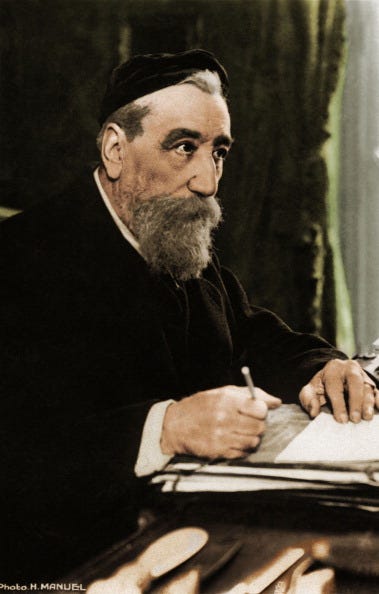|
 |
The Writer's Almanac from Wednesday, April 16, 2014
"Renewal" by Jeffrey Harrison from Into Daylight. © Tupelo Press, 2014.
ORIGINAL TEXT AND AUDIO - 2014
It's the birthday of Gertrude Chandler Warner, born in Putnam, Connecticut (1890). She's the creator of the Boxcar Children series. She taught first grade for more than 30 years. She was home sick one day when she thought up the story of the Boxcar Children. When she was a child, her family had lived near the railroad tracks, and she spent hours watching the trains go by. Sometimes, she would catch a glimpse through the window of the caboose and see a little table, cups, and a tin coffee pot boiling away on the small stove. She was fascinated by the idea that someone was living in the caboose. So when she decided to write a story for children, she thought about those trains. The Boxcar Children series is the story of four orphans, Henry, Jessie, Violet, and Benny, who range in age from six to fourteen. Their parents die, and their grandfather is granted custody. But the children are afraid that he is a cruel old man, and so they run away and set up house in an abandoned boxcar, supporting themselves and living an independent life.
Gertrude Chandler Warner said that after it was published, many librarians objected to the story because they thought the children were having too much fun without any parental control. Warner said, "That is exactly why children like it!"
She wrote the original 19 Boxcar Children books, and in the years since, more than 100 titles have been added to the series, written by other authors.
It's the birthday of novelist Anatole France, born Jacques Anatole Thibault in Paris (1844). His father ran a bookstore called Librairie de France, so when Thibault started publishing, he signed his works "Anatole France" in tribute to his father's store. He was one of France's most popular novelists, and he won the Nobel Prize in literature in 1921. His novels include The Crime of Sylvestre Bonnard (1881), At the Sign of the Reine Pédauque (1892), and Penguin Island (1908).
France said, "The books that everybody admires are those that nobody reads."
It's the birthday of essayist and short-story writer Carol Bly, born Carol McLean in Duluth, Minnesota (1930). Her mother died of tuberculosis when she was 12, and all three of her older brothers were off fighting in World War II. She was sent to rural North Carolina to live with two aunts who were so nasty that the women they hired to clean their house told Carol they felt sorry for her. Bly later wrote that she was able to tell herself: "You were lucky to be sent down to live in the foothills of the Blue Ridge Mountains with ... mean aunt No. 1 and mean aunt No. 2. Lucky. Otherwise you'd have been brought up to be a minimally successful Duluth socialite."
Instead, she went on to Wellesley College, and she met the poet Robert Bly on a blind date. They were married in 1955 and moved to his family farm in western Minnesota. It was a rustic place, with no running water, but the couple's friends gravitated there, including poets Donald Hall, Bill Holm, and James Wright. They always had room for guests, but they made guests help out on the farm. She said: "The thing I loved about the farm was the un-ironical, unsneering kindness. I liked the way people didn't stand around when someone else was working, as the rich do. It's amazing how people pitched in. And I was pleased at the friendliness between men and women.'' She brought up four kids, took care of the house, worked on the farm, and worked with her husband on the literary journals The Fifties, The Sixties, and The Seventies. On top of all that, she wrote a monthly column called "A Letter From the Country" — those columns were eventually collected into a book, Letters from the Country (1981). She said: "I was strong, and I thought everybody was strong. Farm work is interesting, and I like hard work."
She and Robert Bly were divorced in the late 1970s, and she moved to St. Paul and went on to publish books of essays and stories, including Backbone (1985), The Tomcat's Wife and Other Stories (1991), Changing the Bully Who Rules the World (1996), and her only novel, Shelter Half (2008), which she finished in the final days of her life. She died of ovarian cancer in 2007.
She said: "Literature has low enough standards. But we can avoid writing the worst literature if we make ourselves ask ourselves, every two or three sentences we write, 'Is that what I really think?'"
Be well, do good work, and keep in touch.®
If you are a paid subscriber to The Writer's Almanac with Garrison Keillor, thank you! Your financial support is used to maintain these newsletters, websites, and archive. If you’re not yet a paid subscriber and would like to become one, support can be made through our garrisonkeillor.com store, by check to Prairie Home Productions, P.O. Box 2090, Minneapolis, MN 55402, or by clicking the SUBSCRIBE button. This financial support is not tax deductible.

